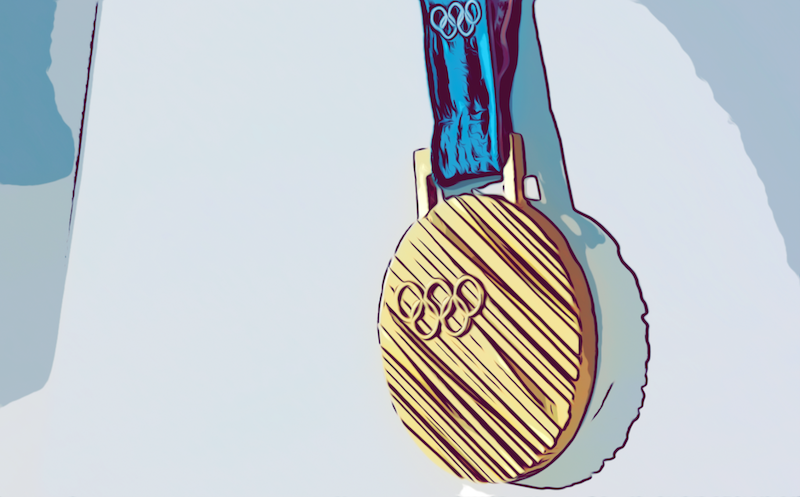5 Constructs of Expert Teams
Expert teams are more than just the sum of their individual parts.

The 2004 USA Olympic Basketball team had one of the most disappointing performances since allowing NBA players to participate in the Olympics.
While the roster was not as prolific as the 1992 "Dream Team," they had plenty of talent, including Tim Duncan, Allen Iverson, Dwayne Wayde, Carmelo Anthony, and LeBron James.
The team's coaching staff also included multiple Hall of Fame coaches. Their head coach was Larry Brown, who had just won an NBA Championship that same year, and the team's assistant coaches included Gregg Popovich and Roy Williams, both of whom have won multiple NBA or NCAA championships.
But despite a roster of future Hall of Famers and multiple championships, they walked away from the 2004 Olympics with only a Bronze Medal.
The embarrassing performance led team USA to change its approach to forming its national team and building cohesiveness from the ground up. This included hiring personnel and coaches to oversee the program in advance. They also required players to give 3-year commitments and participate in summer training camps and qualifying tournaments in the offseason.
Expert Teams
Every year, each major sports league has the best players of that season come together to play in some version of an All-Star Game. But that game is rarely as exciting as most regular-season games between two average teams.
It isn't hard to imagine that the team that wins the championship each year but might only have a handful of all-star players could easily beat that year's all-star team full of only the best players.
That's because, according to The Cambridge Handbook of Expertise and Expert Performance, its technical skills coupled with well-developed team-based skills make the most effective teams.
Expert teams are more than just the sum of each team member's level of experience in their domain of expertise; they are also experts at contributing to team processes and functions.
The authors use a definition provided by Organizational Psychologist Eduardo Salas to describe expert teams;
"A set of interdependent team members, each of whom possesses unique and expert-level knowledge, skills, and experience related to task performance, and who adapt, coordinate, and cooperate as a team, thereby producing sustainable, and repeatable team functioning at superior or at least near-optimal levels of performance."
This article will focus on five constructs that The Cambridge Handbook of Expertise and Expert Performance believe are the most notable for team success and expert performance. They include team adaptation, team composition, the ability to overcome challenges associated with virtuality shared cognition, and team leadership.
Team Adaptation
Every team is faced with the pressure to adapt because our external circumstances are constantly changing. Former MIT Sloan School of Management professor Edgar Schein believes that the earliest human tribes had to contend with two major problems; Adaptation to their external environment and ensuring they had internal coordination to make adaptation to the environment possible.
The world is changing faster than ever, and there is no reason to believe that it will slow down anytime soon. Business organizations face highly competitive markets, and the nature of the workforce is constantly shifting in response to technological advancements and the changing economy.
To contend with today's demands, the importance of effective teamwork and collaboration has increased, and successful adaptive performance is necessary for a team to become an expert team.
Expert teams have to modify, adjust, and alter their behavior in response to current needs. Team adaptation enables team members to consistently learn, acquire new levels of expertise, and make necessary changes in response to the feedback they receive from each other and the environment.
But expert teams don't just make adaptations for the sake of adaptations; due to their expertise, they can make the right changes and discover innovations that lead to improvement where fewer expert teams make changes that lead to errors. An adaptive performance measurement system is also critical in fostering adaptation.
Team Composition
Team composition is the configuration of team member attributes in a team. Team composition is the different characteristics, size, abilities, skills, and personalities that make up the team.
There is no ideal composition as each has its strengths and weaknesses. Larger teams, for example, may have more access to resources but may also face coordination problems due to their size.
The team's composition should be based on the task or the team's environment. For example, teams that require expertise in planning and executing tasks will choose different personalities and skillsets than teams where creativity is a major determiner of success. Some environments, such as sales teams, mainly comprise extroverted personalities vs. introverted ones.
Some teams may require balancing out personalities or skillsets if they become too concentrated. Either way, paying attention to team composition and ensuring it is well suited for your team's environment will impact performance.
Overcoming Challenges Associated with Virtuality
With more and more teams working remotely or building teams worldwide, virtuality becomes more critical than ever.
Virtuality is a term to describe how team members are separated by location and time. For example, teams with a high degree of virtuality might solely rely on email to communicate about task processes, whereas teams that primarily meet face to face have low virtuality.
Teams with a high degree of virtuality cannot rely on typical interpersonal coordination. Instead, due to the inherent time lags, misunderstandings, and lost communication associated with technology-mediated information exchange, they will have to utilize structural supports, communication, and improved information sharing for performance.
Leaders should also strive to ensure high levels of trust among members of virtual teams to maintain coordination. Trust is the glue that keeps virtual teams together. Cohesion, team identity, and psychological safety are also essential to maintain virtual team effectiveness.
Shared Cognition
Another characteristic of expert teams is the team's ability to achieve a shared understanding of the task, the individuals' roles, and the action plan needed to achieve team goals.
Communication is a necessary component of teamwork and success, but expert teams can minimize communication due to having a high degree of shared cognition.
Teams achieve shared cognition through shared knowledge of where expertise lies within the team, trust in the reliability of team members' knowledge and abilities, and coordinated use of each member's skills.
Expert teams also share "mental models" or shared knowledge structures among all team members. These shared mental models allow them to form accurate explanations and expectations for the task and coordinate their actions effectively.
Team Leadership
Leadership has been around as long as groups and tribes have. Groups had to move constantly to find new hunting grounds and resources and be well-coordinated. Leadership emerged as a tool to help with that task.
Groups with less internal fighting could better survive external threats and coordinate to find new resources. So another primary task of leadership was to ensure cohesiveness of the group.
Today is no different; team leadership has consistently been identified as having a major impact on team processes and outcomes across various fields.
Eduardo Salas defines Team Leadership as;
"The ability to direct and coordinate the activities of other team members, assess team performance, assign tasks, develop team knowledge, skills, and abilities, motivate team members, plan and organize, and establish a positive atmosphere".
What sets expert teams apart and provides a distinct advantage to one team over the other is not how skilled the members are, but whether individuals can anticipate the moves of other team members, whether they can adapt to swiftly changing circumstances, and whether they can implicitly coordinate.
Expert teams are more than just the sum of their individual parts. Having talented individuals that have a high level of expertise is important, but just as important is how talented they are in participating in processes that help team coordination.
USA Basketball's new approach to building a team proved to be successful. The 2008 USA Basketball was called the "Redeem Team" after the disappointing 2004 performance. It ended up being one USA Basketball's strongest Olympic performances, going 8-0, winning by an average of 28 points per game, and taking home a Gold Medal.
Sources
